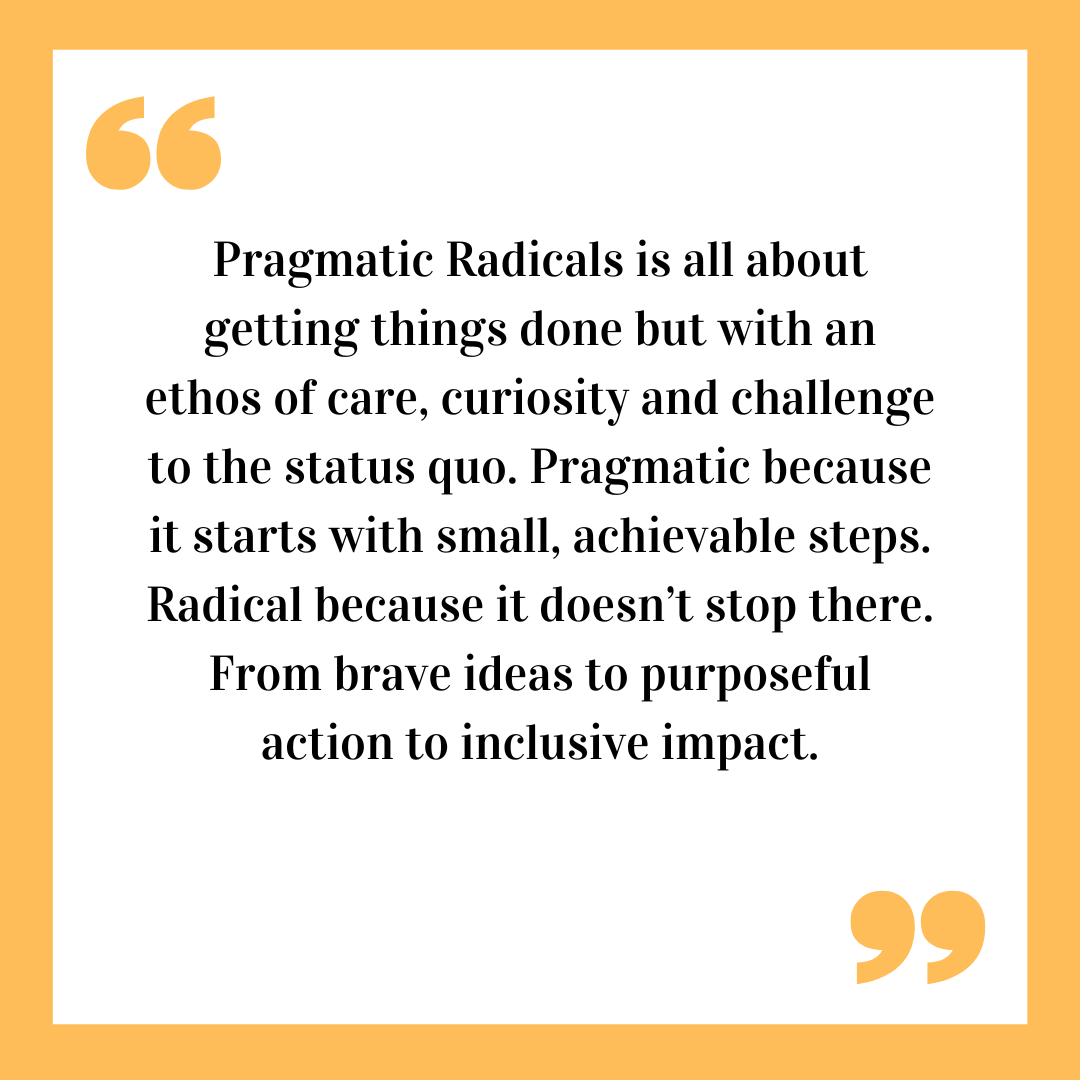Pragmatism is defined as “behaviour that is dictated more by practical consequences than by theory or dogma” whilst radicals “advocate for fundamental changes in current practices, conditions or institutions”.
For me, these are two sides to the same coin of a social transformation to just and equitable models for teams, projects, organisations, communities and ecosystems.
Every meaningful transformation that I have been part of over the past twenty years has begun with a compelling vision. But, critically, the team leading the transformation has also been able to break down that vision into achievable steps which not only offer a clear and practical roadmap but also builds in collaboration and consultation processes that sense-check plans and bring stakeholders and teams on the journey as co-conspirators.
Someone once told me that I had delivered a quiet revolution! With Pragmatic Radicals, I wanted to share my experience, insight and tools that helped me on this journey, and show how to apply this approach at any level – whether you are looking for wholesale systems change or need to shift the needle on a tricky team dynamic or project or learning process.
A pragmatic approach to radical ideas is to recognise that current structures are broken and that transformation is called for but to resist paralysis in favour of small steps, however imperfect, which lead to bigger ones, contributing to a growing momentum and deeper change. The last thing we need is a vacuum of inaction.
Taking on a knotty organisational change project, for example, is a complex affair. It can be deeply political. I know this because I have done it, as a team member and later as a CEO. A deep transformation might be called for, but to bring your people with you, you’ll need to break it down into small, achievable, non-threatening steps. Create shared vision and reassure stakeholders of their place in the brave new world as you go, step by step, towards realising this vision. Consult, iterate and discover common ground as you go. This is pragmatic radicalism.
Be brave in developing strategy. Be honest about what is easy to do versus what is right to do. You could ask what could be done to keep on papering over the cracks? Or, you could ask what could be done to fix those cracks or even rebuild the house so that the cracks won’t appear anymore? What would it take to ask – and then answer – the second question? It might require new skill-sets, rethinking traditional approaches to services, or making space for others. In my experience of co-creating strategy, it usually means not doing the easy things, instead having the resolve to do the difficult things. This is pragmatic radicalism.
Extend this thinking to leadership and teambuilding. Before I made the transition to consulting, I had the privilege of leading an incredibly high-performing team. We weren’t perfect (who is?) but I believe that the radical kindness and care that we built into the team combined with a high-trust, zero-helicoptering approach resulted in a committed, creative team punching well above its weight. As a result of the work that we put into this culture, I have a toolkit of practical approaches for intentionally building this into teams. This is pragmatic radicalism.
Pragmatic Radicals is all about getting things done but with an ethos of care, curiosity and challenge to the status quo. Pragmatic because it starts with small, achievable steps. Radical because it doesn’t stop there. From brave ideas to purposeful action to inclusive impact.

